- Home
- Sale
- 11.11 Sale UPTO 90% OFF
- 35% OFF
- The Aristocracy of Talent - How Meritocracy Made the Modern World
The Aristocracy of Talent - How Meritocracy Made the Modern World
By: Adrian Wooldridge
-
Rs 2,011.75
- Rs 3,095.00
- 35%
You save Rs 1,083.25.
Due to constant currency fluctuation, prices are subject to change with or without notice.
THE TIMES BOOK OF THE YEAR
*Shortlisted for the 2021 Financial Times and McKinsey & Company Business Book of the Year Award*
'This unique and fascinating history explains why the blame now being piled upon meritocracy for many social ills is misplaced-and that assigning responsibilities to the people best able to discharge them really is better than the time-honoured customs of corruption, patronage, nepotism and hereditary castes' Steven Pinker
Meritocracy: the idea that people should be advanced according to their talents rather than their status at birth. For much of history this was a revolutionary thought, but by the end of the twentieth century it had become the world's ruling ideology. How did this happen, and why is meritocracy now under attack from both right and left?
Adrian Wooldridge traces the history of meritocracy forged by the politicians and officials who introduced the revolutionary principle of open competition, the psychologists who devised methods for measuring natural mental abilities and the educationalists who built ladders of educational opportunity. He looks outside western cultures and shows what transformative effects it has had everywhere it has been adopted, especially once women were brought into the meritocractic system.
Wooldridge also shows how meritocracy has now become corrupted and argues that the recent stalling of social mobility is the result of failure to complete the meritocratic revolution. Rather than abandoning meritocracy, he says, we should call for its renewal.
THE TIMES BOOK OF THE YEAR
*Shortlisted for the 2021 Financial Times and McKinsey & Company Business Book of the Year Award*
'This unique and fascinating history explains why the blame now being piled upon meritocracy for many social ills is misplaced-and that assigning responsibilities to the people best able to discharge them really is better than the time-honoured customs of corruption, patronage, nepotism and hereditary castes' Steven Pinker
Meritocracy: the idea that people should be advanced according to their talents rather than their status at birth. For much of history this was a revolutionary thought, but by the end of the twentieth century it had become the world's ruling ideology. How did this happen, and why is meritocracy now under attack from both right and left?
Adrian Wooldridge traces the history of meritocracy forged by the politicians and officials who introduced the revolutionary principle of open competition, the psychologists who devised methods for measuring natural mental abilities and the educationalists who built ladders of educational opportunity. He looks outside western cultures and shows what transformative effects it has had everywhere it has been adopted, especially once women were brought into the meritocractic system.
Wooldridge also shows how meritocracy has now become corrupted and argues that the recent stalling of social mobility is the result of failure to complete the meritocratic revolution. Rather than abandoning meritocracy, he says, we should call for its renewal.
The Aristocracy of Talent - How Meritocracy Made the Modern World
By: Adrian Wooldridge
Rs 2,011.75 Rs 3,095.00 Ex Tax :Rs 2,011.75
Zubin Mehta: A Musical Journey (An Authorized Biography)
By: VOID - Bakhtiar K. Dadabhoy
Rs 472.50 Rs 1,050.00 Ex Tax :Rs 472.50
The Great Degeneration: How Institutions Decay and Economies Die
By: Niall Ferguson
Rs 906.75 Rs 1,395.00 Ex Tax :Rs 906.75
High Financier: The Lives And Time Of Siegmund Warburg
By: Niall Ferguson
Rs 1,787.50 Rs 2,750.00 Ex Tax :Rs 1,787.50
The Origins of Political Order From Prehuman Times to the French RevolutioN
By: Francis Fukuyama
Rs 3,505.50 Rs 3,895.00 Ex Tax :Rs 3,505.50
Manning Up: How the Rise of Women Has Turned Men into Boys
By: Kay Hymowitz
Rs 646.75 Rs 995.00 Ex Tax :Rs 646.75
The Obama Syndrome: Surrender At Home War Abroad
By: Tariq Ali
Rs 1,165.50 Rs 1,295.00 Ex Tax :Rs 1,165.50
The Quest For Meaning: Developing A Philosophy Of Pluralism
By: Tariq Ramadan
Rs 1,255.50 Rs 1,395.00 Ex Tax :Rs 1,255.50
The Pakistan US Conundrum Jihadists The Military And The People The Struggle For Control
By: Yunas Samad
Rs 1,255.50 Rs 1,395.00 Ex Tax :Rs 1,255.50
An Enemy We Created: The Myth Of The Taliban Al Qaeda Merger In Afghanistan 19702010
By: Alex Strick van Linschoten
Rs 3,412.50 Rs 5,250.00 Ex Tax :Rs 3,412.50
WikiLeaks: Inside Julian Assanges War on Secrecy
By: David Leigh & Luke Harding
Rs 552.50 Rs 850.00 Ex Tax :Rs 552.50
The Great Degeneration: How Institutions Decay and Economies Die
By: Niall Ferguson
Rs 906.75 Rs 1,395.00 Ex Tax :Rs 906.75
High Financier: The Lives And Time Of Siegmund Warburg
By: Niall Ferguson
Rs 1,787.50 Rs 2,750.00 Ex Tax :Rs 1,787.50
No recently viewed books available at the moment.
Zubin Mehta: A Musical Journey (An Authorized Biography)
By: VOID - Bakhtiar K. Dadabhoy
Rs 472.50 Rs 1,050.00 Ex Tax :Rs 472.50
The Aristocracy of Talent - How Meritocracy Made the Modern World
By: Adrian Wooldridge
Rs 2,011.75 Rs 3,095.00 Ex Tax :Rs 2,011.75
The Great Degeneration: How Institutions Decay and Economies Die
By: Niall Ferguson
Rs 906.75 Rs 1,395.00 Ex Tax :Rs 906.75
High Financier: The Lives And Time Of Siegmund Warburg
By: Niall Ferguson
Rs 1,787.50 Rs 2,750.00 Ex Tax :Rs 1,787.50












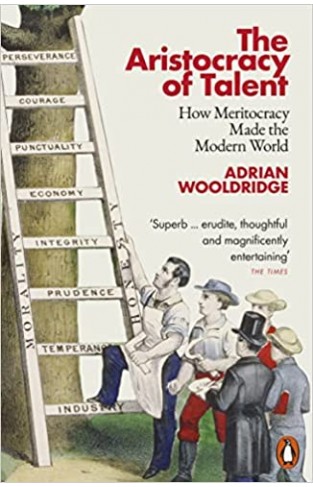
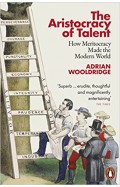
-120x187.jpg?q6)





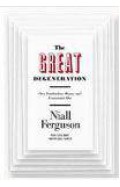
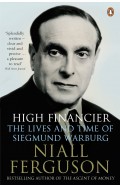
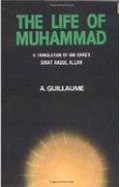
-120x187.jpg?q6)



-120x187.jpg?q6)



